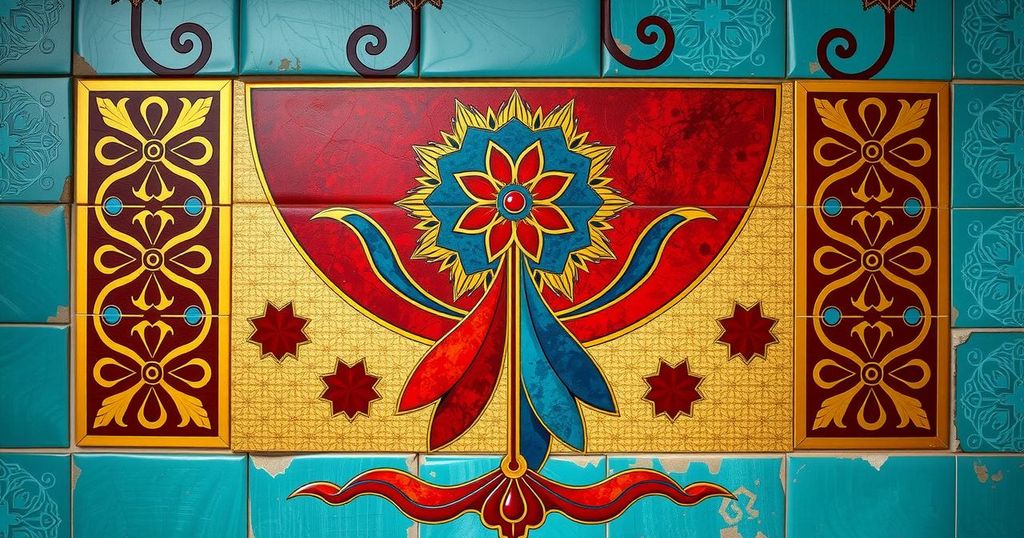Female Empowerment in Morocco: An Unfinished Progress
King Mohammed VI’s 1999 speech emphasized the necessity of addressing women’s rights for national prosperity. Despite advancements, significant challenges in gender equality persist in Morocco. Studies reveal systemic issues like political underrepresentation and economic disparities affecting women, necessitating collective efforts to foster empowerment and participation. The conclusion advocates for continued commitment to overcoming these barriers to harness the potential of women’s participation in society.
In his influential address on August 20, 1999, King Mohammed VI posed a critical question regarding the socioeconomic advancement of Moroccan society: how can progress be envisioned if women’s interests are disregarded? This query underscores the pressing nature of women’s roles in education and the labor market, emphasizing the need for a serious commitment to addressing both their rights and ongoing injustices.
Morocco’s persistent gender disparity raises fundamental questions regarding its origins: Is it rooted in constitutional inadequacies, insufficient legal frameworks, cultural traditions, or entrenched patriarchal attitudes? To comprehend these issues better, it is essential to evaluate the socioeconomic landscape for Moroccan women twenty-five years post-speech and their contributions to the economy, politics, and society.
As of 2022, Morocco ranked 136th out of 146 countries in the Global Gender Gap Ranking. This disheartening position results from multiple factors, including a lack of political engagement in women’s issues, pervasive inequalities in poverty and education, limited economic empowerment, and widespread violence against women.
A study from 2023 by the Moroccan Organization for Family Justice revealed that 86.32% of women have never sought political office, and only 8.49% of women are affiliated with political parties. In 2021, women constituted 24% of parliamentary deputies, 38.5% of regional council members, and 26.64% of municipal council members, despite casting 54% of total votes, indicating a tendency to support male candidates rather than females, thus reinforcing women’s marginalization in politics.
Emerging awareness regarding women’s political empowerment in Morocco is evident in constitutional guarantees for equality and various international conventions on gender equality, such as the CEDAW Convention. However, while progress has been made, women’s political representation remains alarmingly low, revealing a disconnect between political commitments and on-the-ground realities.
Several barriers hinder women’s participation in public life: many regard politics as intimidating, a lack of self-confidence, exclusion from political lists, fundraising challenges, an adverse electoral climate, and deeply ingrained traditional gender roles. Furthermore, media portrayals often perpetuate stereotypes of women’s inadequacy in political ambition, while other women may inadvertently perpetuate exclusionary practices.
The family dynamics play a crucial role in shaping women’s engagement in public affairs; strengthening women’s rights within families is paramount to enhancing their political participation. Unfortunately, recent events have highlighted gaps in representation, most notably during the recent elections for the House of Counsellors’ leadership, where women remained entirely absent despite constitutional provisions advocating for equality.
Addressing these challenges necessitates a unified effort across all societal sectors, fostering a culture supportive of democracy and equality. Young women should receive training in political awareness and human rights, gradually engaging in politics to effectively contest elections and influence governance.
Women’s participation in the economic sectors has also evolved, evidenced by the initial appointment of four female ministers in 1997, now increasing to seven with significant portfolios. Currently, female representation in the civil service stands at 41.22%, with managerial roles at 28.17%. However, women face higher unemployment rates, and those who work earn 20% less than their male counterparts.
While acknowledging significant advancements in women’s rights in Morocco, propelled by the efforts of women’s movements and supportive parties, numerous challenges persist. Addressing these barriers is vital for women to attain their rightful roles in society, especially in decision-making processes. This pursuit is integral to the broader economic growth of the nation, as a higher level of female participation correlates with increased public interest and reduced corruption, as suggested by World Bank findings.
In conclusion, the journey towards female empowerment in Morocco reflects progress tempered by persistent challenges. Women have made strides in education, economic participation, and political representation; however, substantial inequalities and barriers remain. A collective commitment from all societal sectors is crucial to further women’s rights and to enhance their participation across all spheres. As Morocco seeks to achieve equitable development, recognizing and uplifting women’s contributions is essential for the nation’s socio-economic progress and integrity.
Original Source: www.moroccoworldnews.com




Post Comment